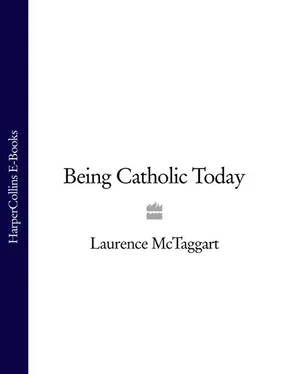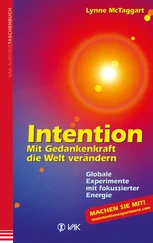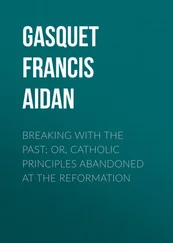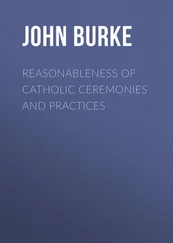Matthew 14:22–33
St Peter spends much of his time in the Gospels getting things wrong. Before Christ’s arrest, he promises to follow him even to the death, but ends up denying to the authorities that he ever knew Jesus. Most people draw some consolation from this. Peter is quite like us: a real faith, but a weak faith; a real hope, but an anxious hope; a real love of Christ, but a fearful love. Christianity looks great, and even attractive, but then so difficult as well.
But let’s be honest, and give Peter some credit. Would you have even got out of the boat? Perhaps you would not have got into the boat in the first place on such a stormy night? Peter errs almost always out of a misdirected enthusiasm, too much warmth. That is not something of which I can be accused very often. Perhaps you are better. But then, what are you warm about? Are you passionate in the cause of women’s ordination, or for the admission of remarried divorcees to communion? Do you get hot under the collar about vacuous musical moanings in church, or fired up at the thought of young people living ‘in sin’?
This is why I have laboured the point about belief not being in the first instance about propositions. None of these initially motivated Peter. To stretch the analogy, he did not engage in a rational process. He did not think anything like: ‘Jesus is the Son of God. Faith in him can move mountains. Therefore, if I believe all that he says, I will be able to walk on water. So, off I go. Oh no, but it’s very windy and the water is very wet. Surely I can’t really float. Help, Lord, I’m sinking.’
In fact, in this story at any rate, Peter did not think at all. He saw and recognized Christ, and just moved. The sight of Jesus drove all from his mind, including some quite important facts. So, then, how like Peter are you? Are you so full of joy at the sight of Jesus that you forget what lies between you, what keeps you apart from him?
What made Peter disregard the wind and the waves, as well as the obvious facts about water and heavy human beings? What gave him that joy, that attraction? It was not faith, or hope, or love, but something much more interesting. It was his need, the clarity with which he felt it, the honesty with which he acknowledged it. Peter walked on water because in Christ he found someone who could and would put out his hand and hold him. Rather than pillory Peter for his lack of faith, we should praise him for the strength of his doubt: doubt of God, doubt of himself. Because that is where we start too, and where we will stay unless we can understand that we do not believe, we do not hope, and we do not love our Lord. If you insist that you do believe, then Jesus can do nothing for you, because you do not need him. He cannot find you if you continue to insist that you are not lost.
Maybe you think that is going a bit far. But please remember our bargain. We agreed not to be Pharisees, but sinners, because we wanted to hear and understand anew the call of Christ. If we do, then something rather marvellous happens. We receive a gift, the gift of a hopeful and loving faith. If you don’t believe me, then try the Pope:
Anyone who wishes to understand themselves thoroughly – and not just in accordance with immediate, partial, superficial and even illusory standards and measures of his being – they must with their unrest, uncertainty and even their weakness and sinfulness, with their life and death, draw near to Christ …
John Paul II, Redemptor Hominis , 10
So here is the only prerequisite for coming to know Jesus as your Saviour. If you want to have faith, this is the secret. Neglect all you know or don’t know about God. Abandon attempts to reconcile the contradictions of the Alexandrian interpretation of the hypostatic union, or to understand transubstantiation. Forget everything except your unrest, your uncertainty, your weakness and your sinfulness. Dwell with them for as long as you can stand it. Then just suppose, as a hypothesis, that you are loved to a depth you cannot imagine. Your lover will die for you, lives for you. This takes us far beyond the merely intellectual. In the same passage, John Paul II says that
if this profound process takes place within you, you will bear fruit not only of adoration of God, but also of deep wonder at yourself and how precious you must be in his eyes. The name for such deep amazement at your worth and dignity is the Gospel, that is to say: the Good News. It is also called Christianity.
Redemptor Hominis , 10; slightly paraphrased
You may not find this way of working very helpful as an immediate experience. But the Pope’s point stands that faith begins in a sense of how much we need, and then astonishment at the suggestion that Jesus is prepared to fulfil that need. It is good theology as well as a way of praying. If you disagree, try living without love. Or, from God’s point of view, try compelling someone else to live without love (except don’t , of course!).
Peter fails because he stops at doubt. His need brings panic; he must cross over to Christ. He ignores the truth that Jesus is coming to him, just as he ignores the comparatively irrelevant Archimedean principle (he’ll sink). But there is no necessity to leave the boat, because when Jesus arrives the wind will drop and the waves become calm. Don’t just do something, sit there!
This is the truly amazing part of the Gospel, and the easiest to forget: that God moves long before we do. Before we can call, he is there. Before we can repent, he has forgiven. We will see this again in later chapters, so I will leave its expansion to those applications. For now, it simply means that there is no place to which Jesus cannot follow you. The reason is that, because of his love for you, there is no place where he does not want to follow you, just to be with you, and to draw you back to the Father.
Man of little faith, why did you doubt? Doubt everything you like – yourself, your strength, your worthiness, even God and his love. Faith does not erase those doubts, because they are truth, truth about us. Faith adds another, contradictory fact, a fact about God: the Lord is coming to save.
If this is what faith is about, then it shows us how important the Creed is, and what the teaching of the Church’s magisterium is for. Doctrines are vital because they attempt to encapsulate and apply the content of the Gospel. They derive their significance from the personal contact with Christ which is that content; the wonder or amazement of which John Paul II has spoken. This can be demonstrated from the simple experience of the Church’s history and life. For example, as we will see below, the only way to express adequately in human language the intensity with which Jesus gives himself to us in the Eucharist is to talk of eating his Body and drinking his Blood; and to mean that, literally. Less controversially, when discussing the nature of Christ, the early theologians insisted that Christ was fully human, because ‘what was not assumed by God in Christ was not saved’, and the Christian hope is of salvation of the whole human person.
The Pope and the bishops have the task of interpreting human need and divine response in each age and all circumstances. This is a sufficiently daunting commission to encourage one to have sympathy with them. Even more so, when one realizes that they do so, and can do so, only in union with the whole Body of Christ; including you and me.
This tells us, further, how to interpret the Church’s teaching. Any given doctrine is not the result of speculation, but is forced on us to express our faith. So, in turn, we say that we believe the doctrine, that is, say it is true, because the doctrine says what we mean by putting our faith in God, revealed in Christ. Conversely, pick a doctrine, and we can try to work out what it really means in the light of the Gospel it expresses. Take murder. The Church agrees with many others that in most instances it is wrong to kill. Why? Because each human life has an equal value in God’s sight. Conversely, I am loved by God in and for myself, regardless of how tall I am or what I do. Hence, you are too. So it would not be consistent with the good news of my own life to take yours.
Читать дальше












